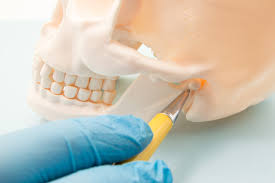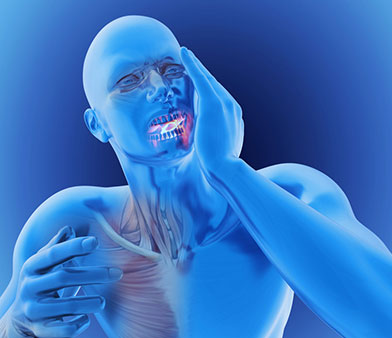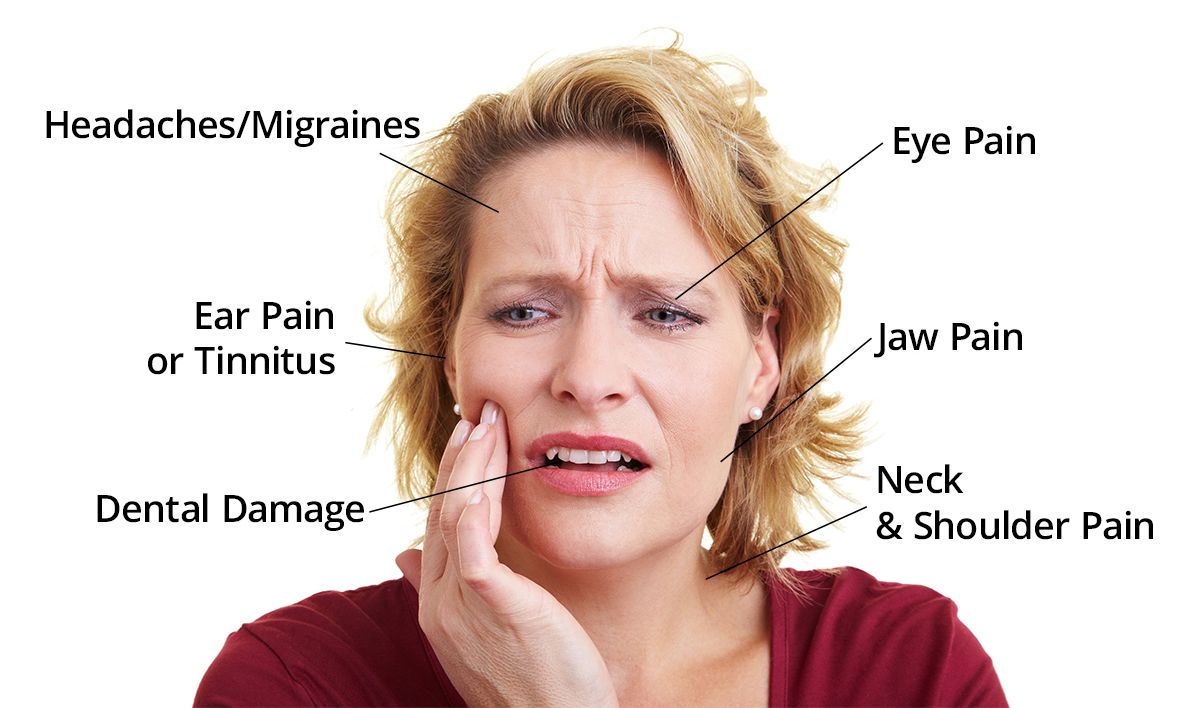Hello!
 If you have been battling with simple actions such chewing or opening and closing your mouth,you may have a TMJ or Temporomandibular Joint disorder. The temporomandibular joint on both the sides of your jaw acts like a sliding hinge and connects your jawbone to the skull.
If you have been battling with simple actions such chewing or opening and closing your mouth,you may have a TMJ or Temporomandibular Joint disorder. The temporomandibular joint on both the sides of your jaw acts like a sliding hinge and connects your jawbone to the skull.
What is TMJ Disorder?
Exact cause of Temporomandibular Joint or TMJ disorders is mostly difficult to determine. Pain in these jaw muscles or joint may be due to a combination of various factors such as jaw injury, genetics or arthritis. Overuse of the jaw muscles or excessive stress on the temporomandibular joint can also lead to TMJ disorders.
Actions like grinding or clenching your teeth (bruxism), biting on hard non-food items like pen, eating too many chewy foods etc.. can put unwarranted stress on your jaw joint. The jaw muscles become sore as a result of which the joints feel fatigued. In such situations, even simple actions such as eating, chewing or opening and closing the mouth can bring discomfort or pain. It can also result in headaches since some of the jaw muscles connect the lower jaw to the skull.
Some symptoms of the TMJ disorder are:
- Pain or tenderness in jaw or around the ear
- Clicking or popping sound in jaw
- Locked jaw
Can Invisalign or Teeth Braces fix TMJ?
 Most of the people feel that orthodontic treatment for TMJ disorder such as Invisalign for TMJ or braces for TMJ are a perfect solution. So, are they? Listed here are a few factors to consider if you feel that Invisalign braces or teeth braces for TMJ can help address your TMJ disorder.
Most of the people feel that orthodontic treatment for TMJ disorder such as Invisalign for TMJ or braces for TMJ are a perfect solution. So, are they? Listed here are a few factors to consider if you feel that Invisalign braces or teeth braces for TMJ can help address your TMJ disorder.
- A lot of research has been done on the effect of Invisalign on TMD has been done but no concrete positive evidence is found.
- Dental professionals generally try some of the most traditional approaches first to ensure that the issue isn’t related to your jaw muscles. It includes stopping the overuse of muscles with the help of nightguard or correcting imperfect bites.
- Surgery is typically the last resort prescribed by orthodontists based on the severity of the case. However, in certain cases, surgical treatments do help rectify TMJ disorder.
- Invisalign helps protect your teeth from the effect of nighttime grinding or bruxism which is known to aggravate symptoms of TMJ Also, these aligners or even teeth braces help realign the upper and lower jaw and rectify imperfect bites. This greatly improves your chewing, biting, opening and closing of the mouth and hence alleviates TMD symptoms.
If TMJ is left untreated for long, it may become severe and you can become more prone to cavities, tooth decay, gum diseases and other serious oral health disorders. Braces can help address the condition of TMJ to a certain extent, but it depends on the peculiarities of your case. Hence, it’s best to talk to your orthodontist if you are suffering from TMJ and are considering Invisalign or braces for TMJ.
 Also read:
Also read:
- How to Take Your Business Online in 2025
- Why Your Business Needs a Second Phone Number App
- Step by Step Guide to Learn Fibonacci Trading Strategy
Thank you!
Join us on social networks!
See you!






